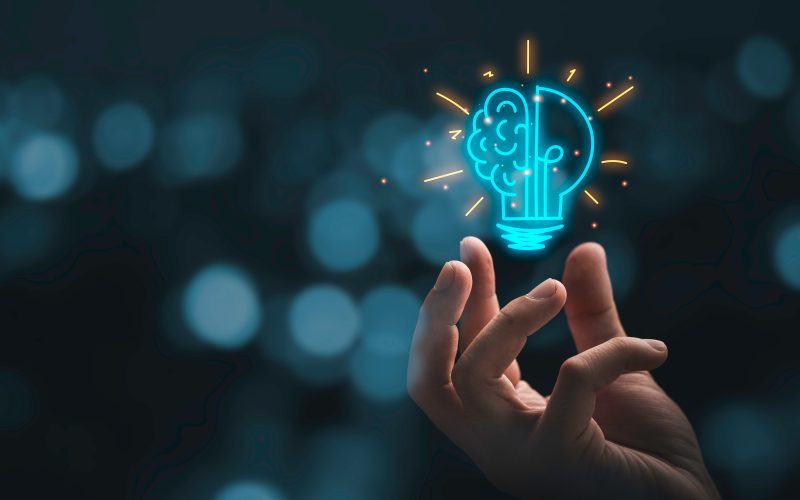Intelligence is better measured across a spectrum, rather than with a simple IQ test. Rina Bliss, associate professor of sociology at Rutgers University, joins host Krys Boyd to discuss her work in epigenetics, working to understand how human intelligence grows and changes in response to our surroundings. Her book is “Rethinking Intelligence: A Radical New Understanding of Our Human Potential.”
Blog Post: Your intelligence is more than just a test score — and you can strengthen it every day
— By Brianna Flores, Think Intern
A score on an IQ test may not be the best measure of our intelligence. While some may think our intelligence is set in stone, our guest argues that we have the power to grow our intelligence throughout our lives.
“[Having] a growth mindset is a way of seeing our intelligence that really sees ourselves as neuroplastic,” says our guest, Rena Bliss. “What I mean by that is we’re always growing and developing.”
Bliss explains how we should view intelligence as an ongoing process or a lifetime journey. This can be difficult when we live in a society that gives a lot of weight to testing. We use aptitude tests and standardized testing to evaluate people’s intelligence starting at a very young age.
“This idea that we can just take these IQ scores at face value is really problematic… and as people who are just wanting to know more about our genes, we have to be super critical,” Bliss says.
When we take tests, there are a lot of variables that affect how we perform on the exam. These factors include a person’s health, housing situation, and even family environment.
“When you have things like public health systems and people’s basic needs are being met, then you see that scores tend to be more along the lines of what we think of as being a ‘healthy IQ score,’ if there is such a thing,” Bliss says.
Even stress takes away the performance of the test taker. Bliss argues that we can have a better understanding of ourselves by stepping away from using tests to evaluate intelligence and considering our background and its role in shaping our minds.
“We have these very different environments,” Bliss says. “We have these different life stories. We have these different configurations of strengths. When we start thinking about intelligence that way, then we aren’t as dismissive of different ways of thinking and learning.”
One of the ways that you can strengthen your brain is by trying the connected learning method.
“It’s a kind of learning where you set up a learning event and you do so in a way that kind of makes everybody learn together and get synergistically going with the learning,” Bliss says. “And the coolest thing is that you retain more information when you do this kind of learning.”
Doing DIY projects in a group environment is a great way to practice connected learning. It allows us to be open-minded and gain real-world learning experience.
“Studies have shown that people who have a growth mindset as opposed to a fixed mindset — they are better at noticing mistakes,” Bliss says. “Their brains are like ‘Hey, I made a mistake. Let’s learn.’”
You can learn more about changing your perspective on intelligence by listening to the podcast above.





